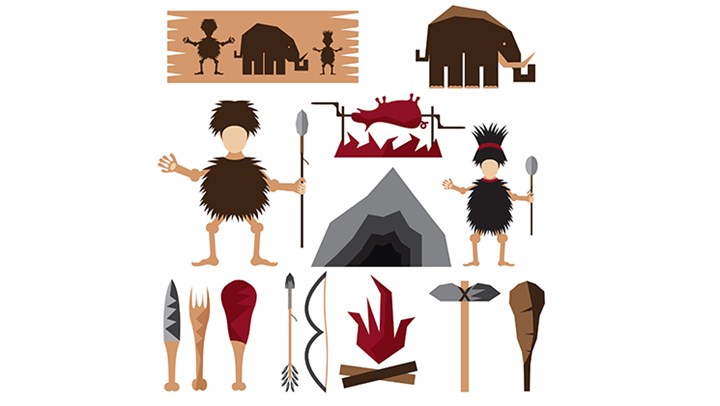
by Frank Miniter - Monday, July 11, 2016

What is more “green” than eating free-range animals that don’t have any antibiotics and more pumped into them? Yes, I’m talking about hunter-killed meat. Even my aunt, a Green Party advocate who has a bumper sticker on her Prius that says, “Heart Attacks: God’s Revenge for Eating His Animal Friends,” is coming around. She actually asked me for some venison.
The “Paleo diet” trend has gotten so big, it not only found my aunt, but it has become one of the most popular fad diets in America. In emulating the diet of our hunter-gather ancestors, it sidesteps processed foods, sugar, dairy and grains. Books like “The Paleolithic Prescription: A Program of Diet and Exercise and a Design for Living” (1988) and “The Paleo Diet” (2002) have added a basis to the Paleo diet (also known as the “caveman diet”) trend.
Many studies have found there is no historical evidence supporting the notion that veganism leads to a longer or healthier life; actually, some have found the opposite is true. A critical look at five studies on the Paleo diet by Authority Nutrition (authoritynutrition.com) found that the evidence showing Paleo diets work “is very promising.”
There are many versions of the Paleo diet, but they all include eating wild game. Basically, these diets concentrate on eating meat and fish, lots of vegetables, some nuts, seeds, fruit and no sugar. The low-carb Atkins diet trend broke the ground for the high-protein, low-sugar diet. The Paleo diet is simply a wilder version of Atkins.
Hunters kill and eat more than six million deer, and so much more, each year in the United States. This is something hunters have always viewed as being healthy. Now the rest of America is finding this out.
Part of the reason for this trend is that many in the green movement fear man-made chemicals, such as growth hormones. Although the U.S. Department of Agriculture (USDA) says the growth hormones used for commercial meat are safe for human consumption, some are uncomfortable with them.
Some also point to the research paper “Back To Our Ancestor’s Diet—A Healthy Move” authored by nutritionists Ken Edwards and William J. Rice that determined wild game meat often contains higher levels of vitamins and minerals than domestic meats. Edwards and Rice say their goal is “to replace the 1992 Department of Agriculture Food Pyramid with the Building Blocks for Healthy Eating” that emphasizes eating foods free of pesticides, hormones and so on—essentially, they promote the Paleo diet. They argue that wild game tends to consume live plants that have a higher nutrient content than the feed domestic animals are often fed.
Also, S. Boyd Eaton, M.D., an authority on Paleolithic (prehistoric) diets, argues that on average modern U.S. diets are out of sync with human needs. According to Eaton, the dietary changes that have occurred over the past 10,000 years—when we went from being hunter-gatherers to farmers who might also hunt to people who eat Cheetos and Chinese takeout—have gone out of whack with our bodies’ real needs.
Certainly, wild game is generally leaner than domesticated animals. Mayo Clinic nutritionists, Jennifer Nelson, M.S., R.D. and Katherine Zeratsky, R.D., even say that in “comparison to lean cuts of beef and pork, game meat has about one-third fewer calories (game birds have about half the calories) and quite a bit less saturated and total fat.”
This point of view has made game meat so trendy that a USDA fact sheet says that for “an increasing number of restaurants and home diners, game meats are becoming more commonplace.”
The Paleo trend is now so pervasive it is being used as an adjective, as in “I’m Paleo” or “She is Paleo, too.” There is even a Paleo festival in in Austin, Texas, each year and a Paleo magazine.
Now when you meet that relative this Thanksgiving who sneers at you for being a hunter, you can say, “You do realize that I’m Paleo.” After he or she falls back a step, you can say, “Yup, the meat I eat is the ultimate in fresh, clean, organic protein. It is free-range and not filled with hormones and antibiotics. Have a bite!”
E-mail your comments/questions about this site to:
[email protected]
Proudly supported by The NRA Foundation and Friends of NRA fundraising.
